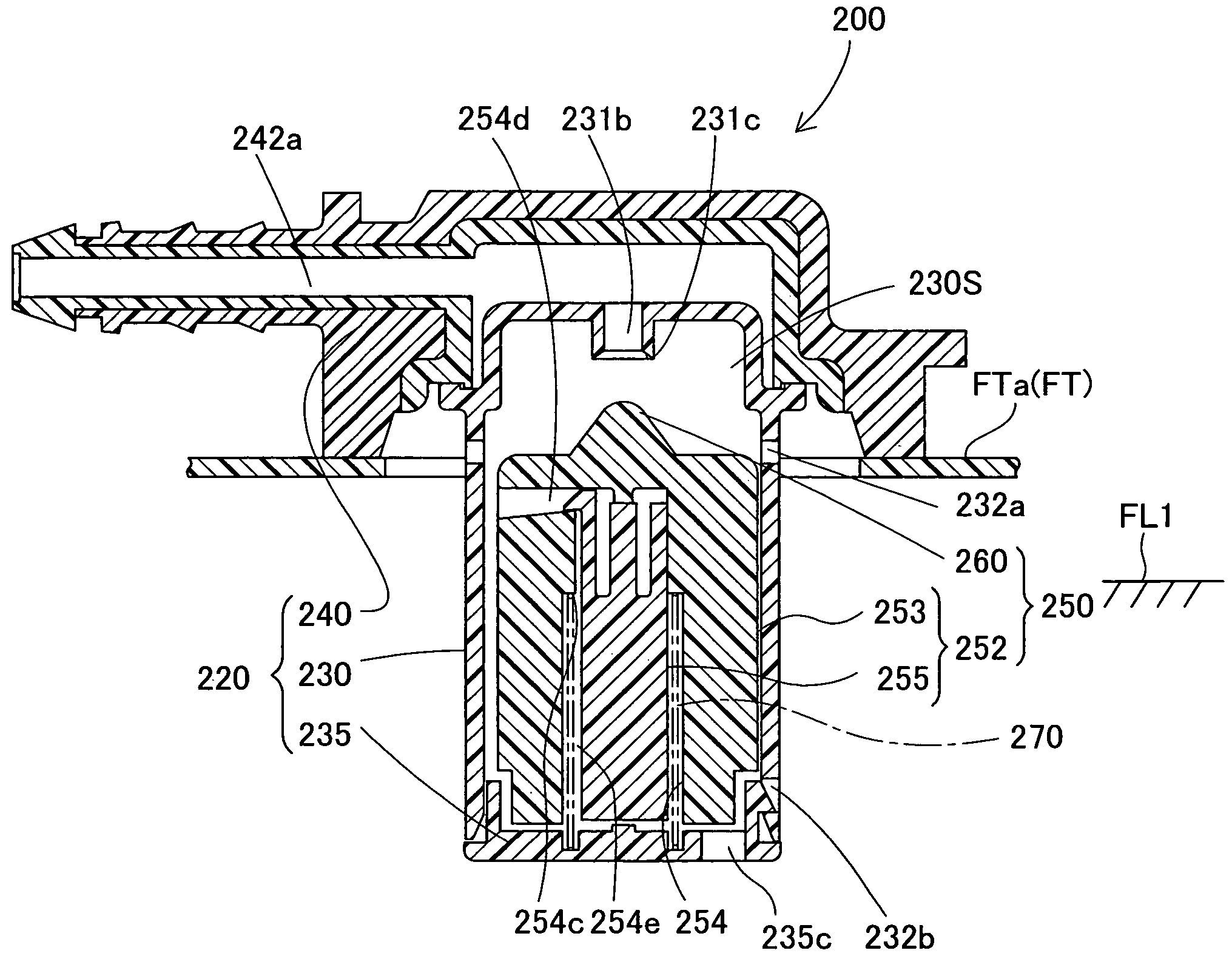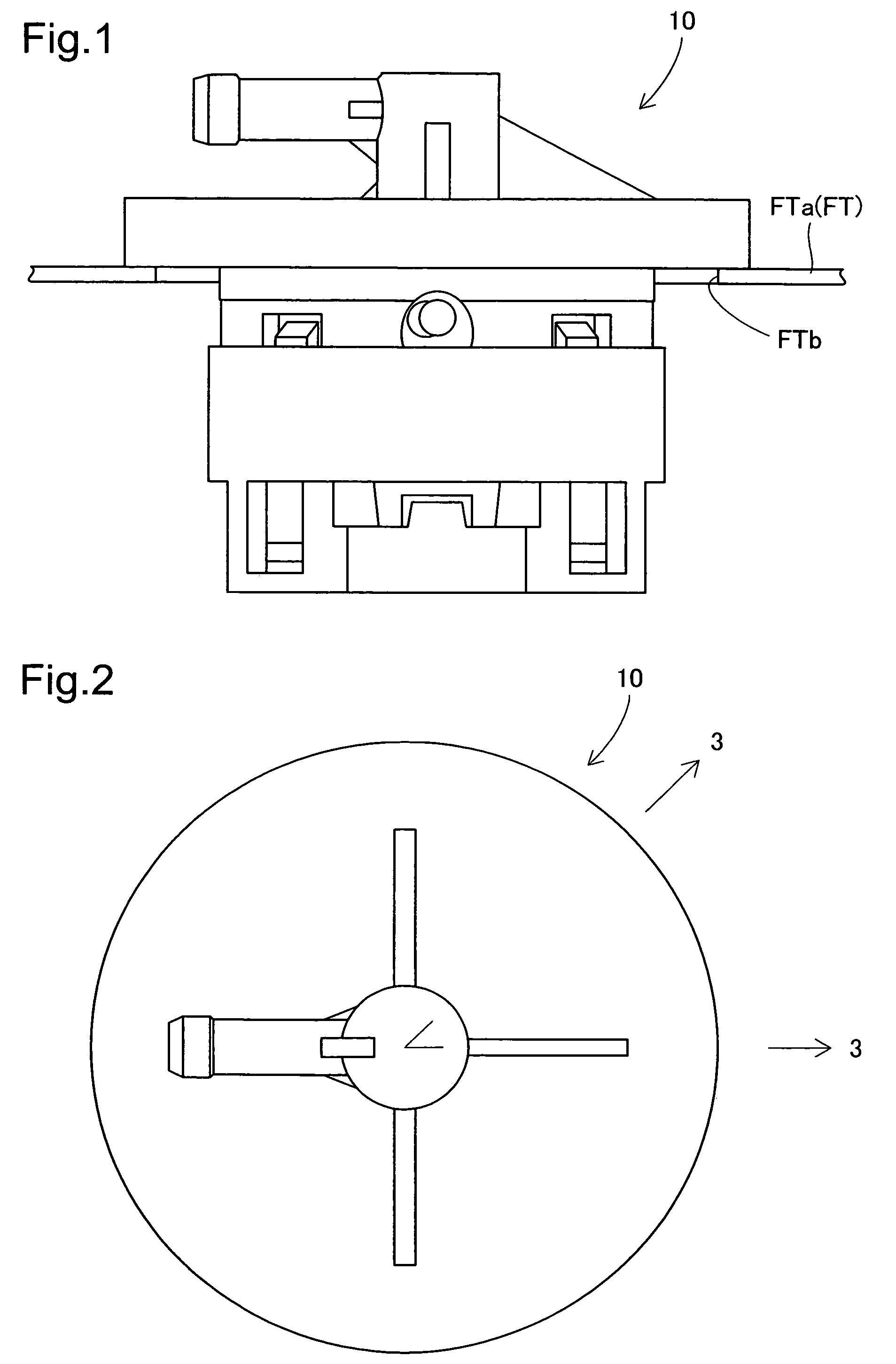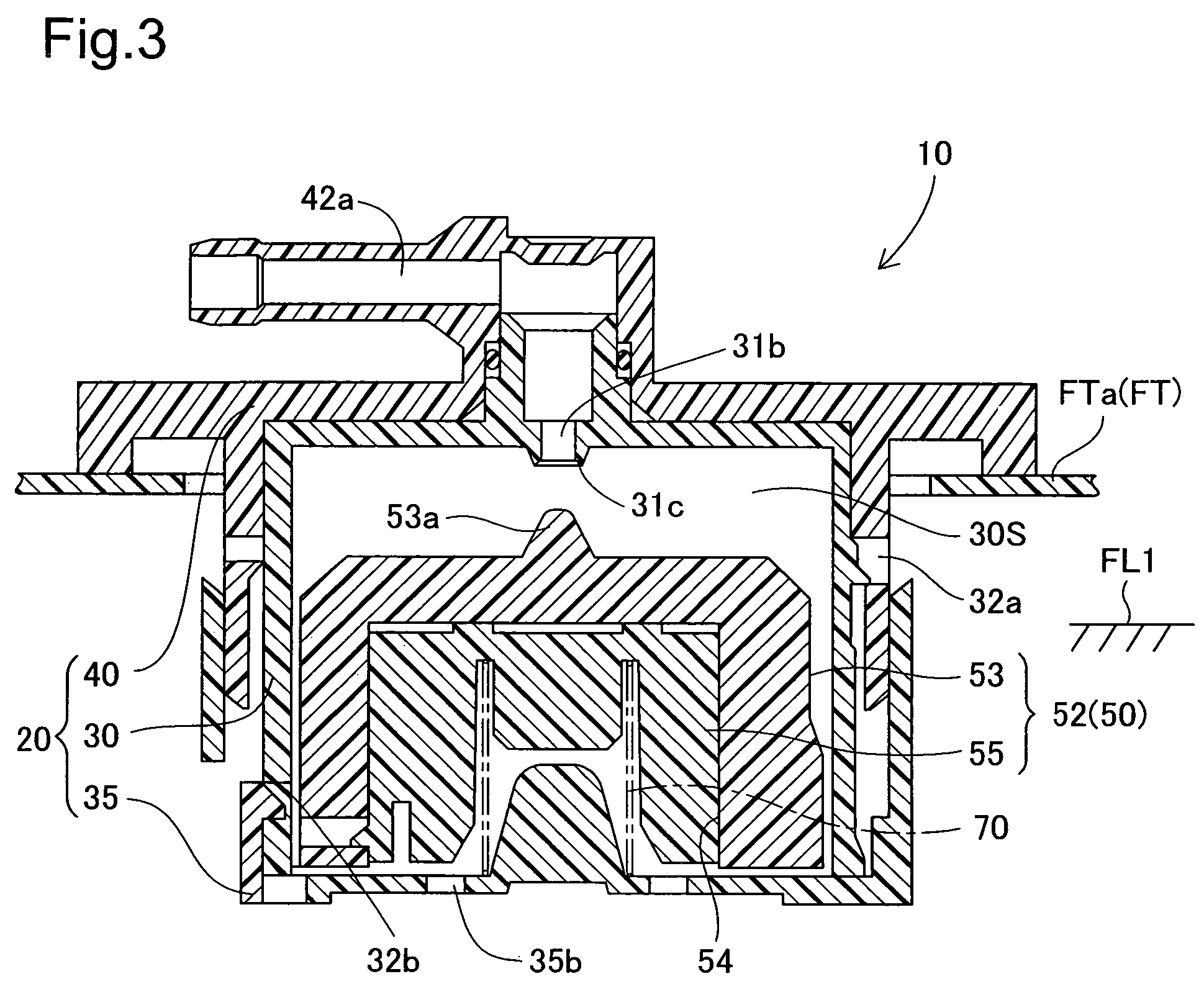Fuel cutoff valve
a technology of fuel cutoff valve and cutoff valve body, which is applied in the direction of valve operating means/release devices, functional valve types, containers, etc., can solve the problems of variable cutoff fuel level, float molding precision suffers, and the buoyancy of the float is affected, so as to improve the molding precision of the float, reduce the variability of the cutoff fuel level, and improve the effect of manufacturability
- Summary
- Abstract
- Description
- Claims
- Application Information
AI Technical Summary
Benefits of technology
Problems solved by technology
Method used
Image
Examples
first embodiment
A. First Embodiment
[0037](1) Schematic Structure of Fuel Cutoff Valve 10
[0038]FIG. 1 is a side view illustrating a fuel cutoff valve 10, attached at the top part of an automobile fuel tank FT, according to an embodiment of the present invention; FIG. 2 is a plan view of the fuel cutoff valve 10; and FIG. 3 is a cross-sectional view along the section 3-3 in FIG. 2. In FIG. 1, the fuel tank FT is fabricated from a compound resin material that includes polyethylene on the surface thereof, structured with an attachment hole FTb at the tank upper wall FTa. The fuel cutoff valve 10 is attached to the tank upper wall FTa in a state wherein the lower part of the fuel cutoff valve 10 is inserted into the attachment hole FTb. The fuel cutoff valve 10 prevents the flow of fuel from the fuel tank FT into the canister when the vehicle is at an angle in the pitch or roll direction.[0039](2) Structure of Each Part of the Fuel Cutoff Valve 10
[0040]In FIG. 3, the fuel cutoff valve 10 is provided wit...
second embodiment
B. Second Embodiment
[0052](1) Schematic Structure of Fuel Cutoff Valve 100
[0053]The fuel cutoff valve in the second embodiment has an auto-stop function along with preventing the flow of fuel within the fuel tank into the canister during fueling until a predetermined level has been reached, and also prevents overfill. FIG. 6 is a cross-sectional view of a fuel cutoff valve 100. The fuel cutoff valve 100 comprises a casing 120, a float mechanism 150, and a spring 170 as the primary structures thereof. The casing 120 is provided with a casing main body 130, a bottom plate 135, and a cover 140, where the space surrounded by the casing main body 130 and the bottom plate 135 forms a valve chamber 130S, where the float mechanism 150, supported by a spring 170, is housed in the valve chamber 130S.[0054](2) Structure of Each Part of the Fuel Cutoff Valve 100
[0055]FIG. 7 is a cross-sectional view of the assembly of the fuel cutoff valve 100. The casing main body 130 is cup-shaped, surrounded...
third embodiment
C. Third Embodiment
[0070](1) Structure of A Fuel Cutoff Valve 200
[0071]FIG. 12 is a side view illustrating a fuel cutoff valve 200, equipped at the top part of a fuel tank FT of an automobile, according to a third embodiment according to the present invention, FIG. 13 is a plan view of the fuel cutoff valve 200, and FIG. 14 is a cross-sectional view along the section 14-14 in FIG. 13. The fuel cutoff valve 200 prevents the fuel inside of the fuel tank FT from flowing out to the canister when the automobile is at an angle in the pitch or roll direction.
[0072]In FIG. 14, the fuel cutoff valve 200 is provided with a casing 220, a float mechanism 250, and a spring 270 as the main structural components thereof. The casing 220 is provided with a casing main body 230, a bottom plate 235, and a cover 240, where the space surrounded by the casing main body 230 and the bottom plate 235 forms a valve chamber 230S, where a float mechanism 250, supported on a spring 270, is housed in the valve c...
PUM
 Login to View More
Login to View More Abstract
Description
Claims
Application Information
 Login to View More
Login to View More - R&D
- Intellectual Property
- Life Sciences
- Materials
- Tech Scout
- Unparalleled Data Quality
- Higher Quality Content
- 60% Fewer Hallucinations
Browse by: Latest US Patents, China's latest patents, Technical Efficacy Thesaurus, Application Domain, Technology Topic, Popular Technical Reports.
© 2025 PatSnap. All rights reserved.Legal|Privacy policy|Modern Slavery Act Transparency Statement|Sitemap|About US| Contact US: help@patsnap.com



